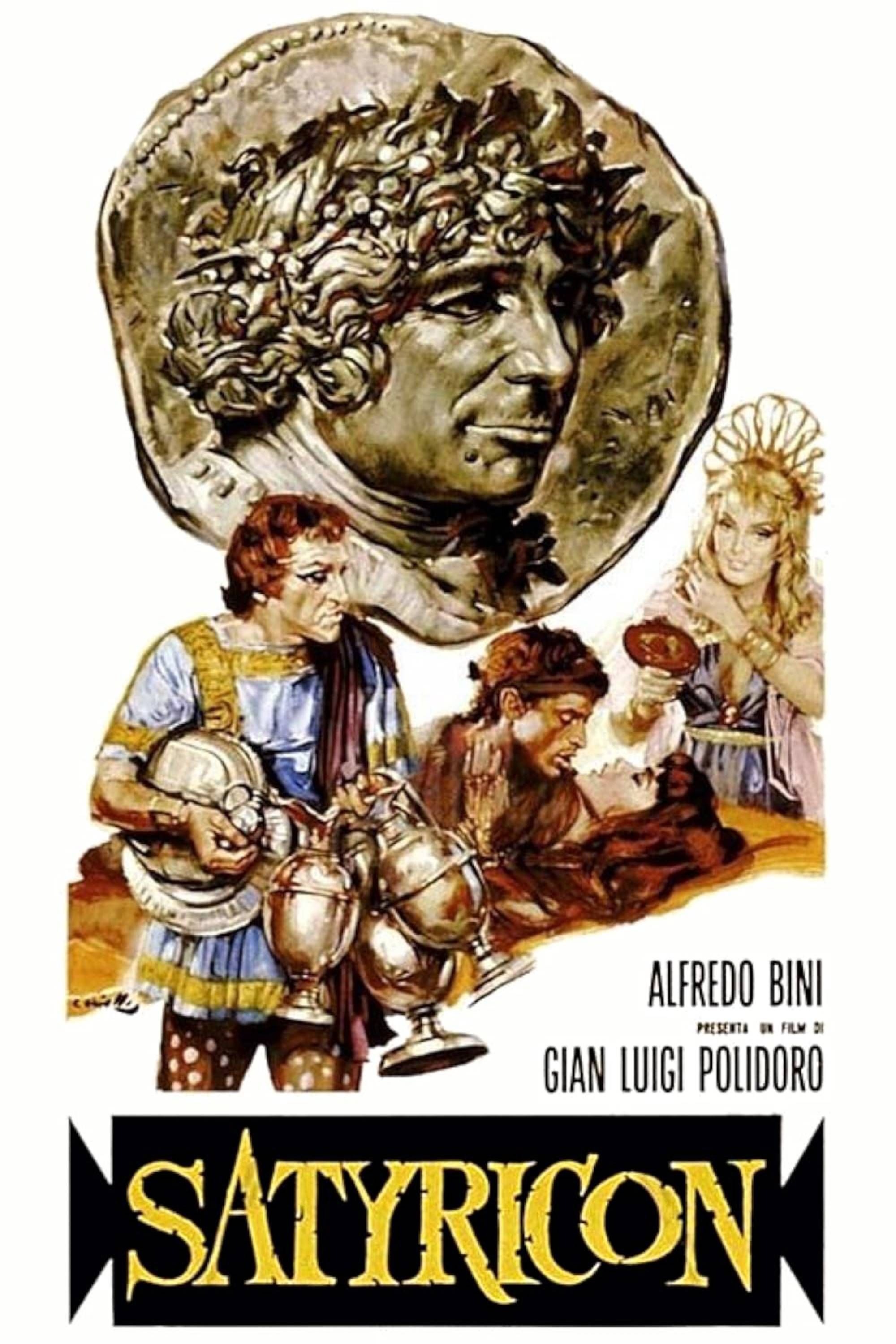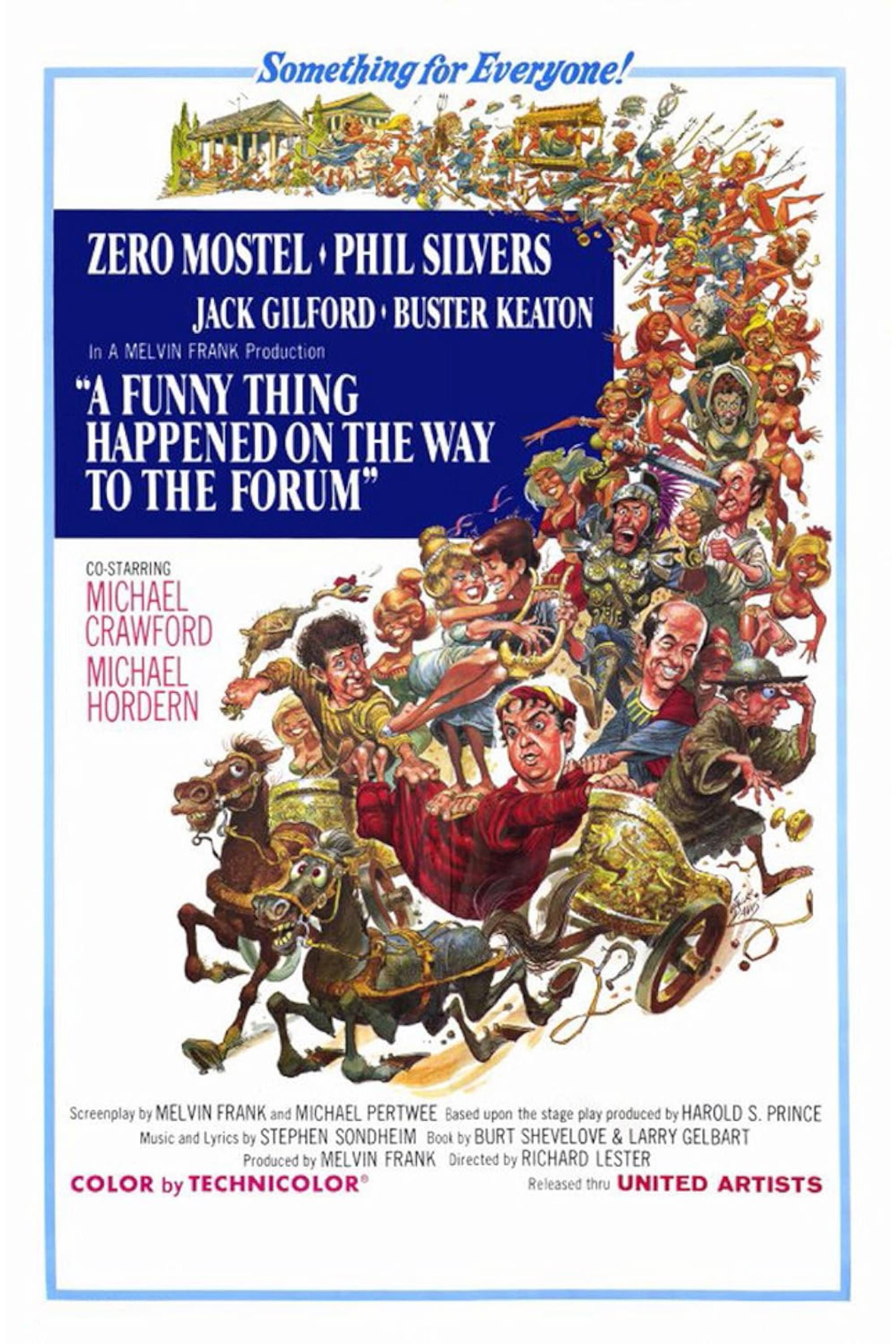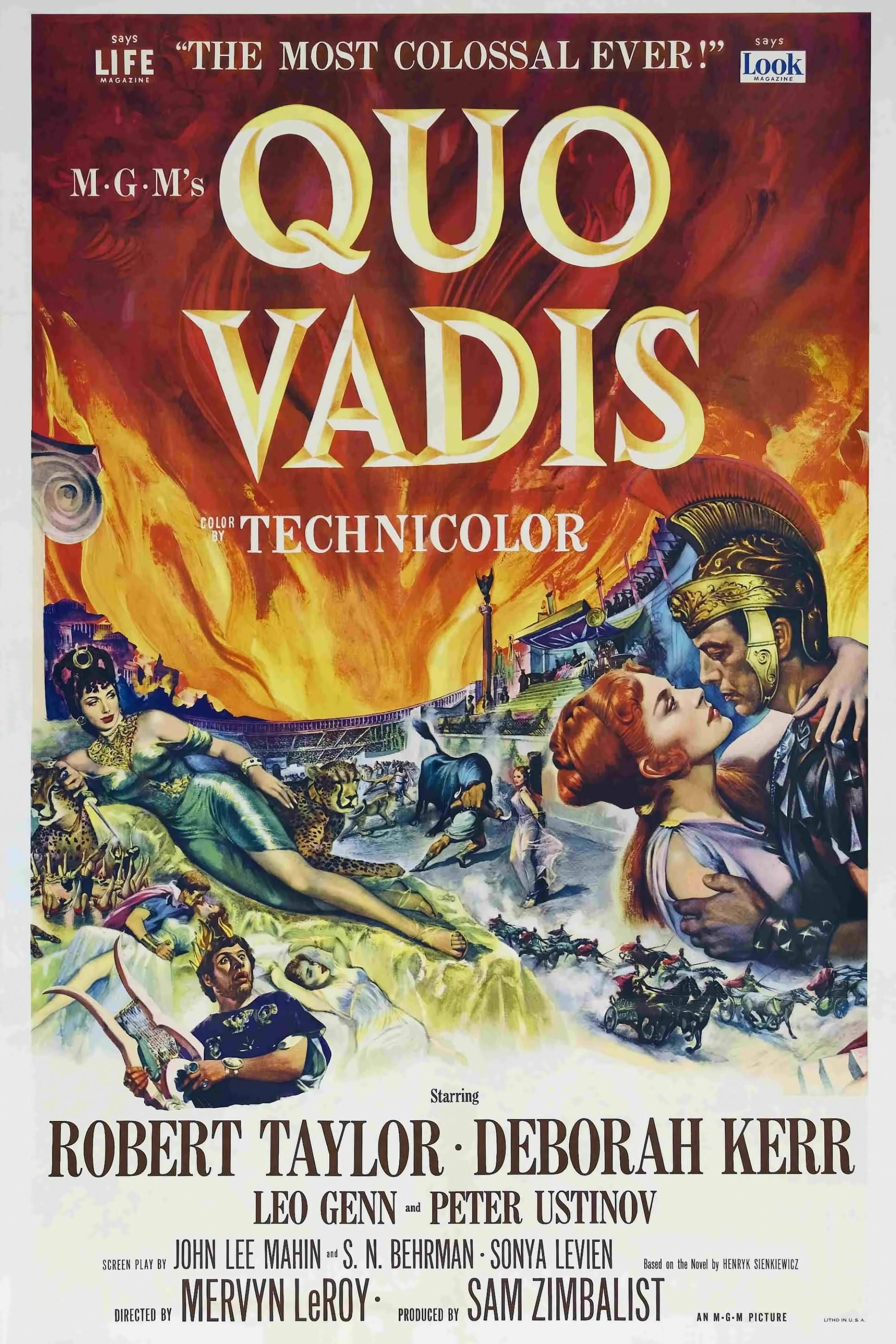Whether it be due to its influence of democracy, technological or cultural advancements the vast country contributed to, or its might as one of the world’s first superpowers, Ancient Rome has been the subject of mass-obsession. From prestige dramas, viral trends, and political discussion, Roman culture, concepts of gender, sexuality, freedom, and class, as well as religion and expansion, continues to be at the center of intrigue, fascination, and controversy.
While films such as Gladiator II and shows like Spartacus captivated audiences with their focus on Roman gladiators and the greater hierarchies at play, these underrated films touch on similar subjects and broader issues such as the consequences of Roman expansion and the birth of monotheistic religions like Judaism and Christianity.
is a 1961 religious epic that follows the titular character's (Anthony Quinn) transformation from a prisoner of the Roman Empire to a controversial recipient of freedom. An American adaptation of the 1953 Swedish film, the story begins shortly after Pontius Pilate's contentious offer to release Barabbas or Jesus Christ, with the former being chosen by the populace. After his freedom, Barabbas returns to a world transformed by Christ's crucifixion.
As time passed, Barabbas emerged as a highlight among films about Ancient Rome. The film is decorated with enthralling gladiator narratives, wonderful shots of Verona and Rome, as well as a grueling, effective crucifixion scene shot during a total solar eclipse. Despite winning prestigious cinematography awards in Italy, as well as "Best Foreign Film" at the National Board of Review, Barrabas would not earn the same success as Ben-Hur. Nevertheless, the film remains a captivating look into the complex persecution of Jewish and Christian communities in the Roman Empire.
An English-language Spanish film directed by Alejandro Amenábar, is a 2009 film taking place in Alexandria during 391 AD. The main focus is Hypatia (Rachel Weisz), a mathematician, astronomer and philosopher, whose interrogation of the geocentric model causes an uproar among the elite. Despite the intriguing premise and the discussions Agora taps into, the film ran into difficulties with distribution. However, that has yet to prevent the film from being fondly celebrated as a moving piece about education, femininity, and religion in the Roman Empire.
As the film displays Agora's intelligence, ambition, and courage in the face of fundamentalism, Agora also discusses the Christianization of the SWANA region. During press for the film, Weisz and Amenábar shared their openness about discussing Hypatia's motives as well as the state of human nature during the Roman Empire with one another.
Said purposefulness and consideration can be seen throughout the film, from scenes where Hypatia and Davus (Max Minghella) relationship as peers in the field of science, but also underpinning the unrequited love from Davus's vantage point. Weisz, Minghella, Oscar Isaac, among others, bring a necessary curiosity about Ancient Roman civilization, understandings of the world, and the state's continued attack on education.

Satyricon
- March 27, 1969
- 120 Minutes
- Tina Aumont , Don Backy , Mario Carotenuto , Franco Fabrizi , Francesco Pau
, otherwise known as is an Italian film inspired by Roman courtier Petronius's work of the same name. Set during the reign of Nero, the film focuses on Encolpius (Don Backy) and Ascyltus (Franco Fabrizi), two miscreants who constantly quarrel with one another over the affection of Gitone (Francesco Pau). After they find themselves in the home of an affluent patrician, the duo are exposed to magical slights, disease, and more discord.
The colorful film was lambasted at the time for its alleged obscenity, with director Gian Luigi Polidoro and producer Alfredo Bini being fined for the production of the film. Nevertheless, between the film's embrace of queerness by way of the cross-dressing Gitone and its entertaining mélange of explicit, slapstick comedy and adrenaline-rushing adventure, Satyricon stands as an essential, bashful viewing experience for anyone that yearns for an inspired film about sexuality, class, and ideas of fate in Ancient Rome.

Related
The 15 Best Movies About the Roman Empire, Ranked
People’s interest in the Roman Empire never ends. Therefore, here are the best movies about the Roman Empire, ranked.
stars Alberto Sordi as Nero, in a historical comedy that shines light on the Roman emperor's folly. Chronicling a power struggle between Nero's commandeering mother Agrippina (Gloria Swanson) and Seneca (Vittorio De Sica), a loyal philosopher, the film offers audiences a beguiling yet clever look at the ways both parties attempt to rebuild Nero into their respective images, and the consequences of their efforts.
Aside from being the first appearance of film icon Brigitte Bardot, Nero's Mistress continues to be held in high regard as an impressive comedy. The film excellently balances Nero's historically accurate controversial behavior with hijinks and humorous schemes that highlight the ridiculousness of his reign. The combination of Sordi, Swanson, and De Sica's talents results in a hilarious story filled with thespians that bask in the darkness of their characters, using humor to highlight and ridicule their immorality.

A Funny Thing Happened On The Way To The Forum
- October 16, 1966
- 99 Minutes
- Zero Mostel , Jack Gilford , Phil Silvers , Buster Keaton , Michael Crawford
is a musical comedy that follows Pseudolus (Zero Mostel), a slave who cleverly attempts to gain freedom. Known by many as "the lyingest, cheatingest, sloppiest slave in all of Rome," Pseudolous hopes that his assistance with Hero's (Michael Crawford), his master, romantic pursuit of Phillia (Annette Andre), will earn him freedom. However, the quest is filled with its fair share of ridiculousness that attempts to thwart Pseudolus and Hero's respective dreams.
A story emblematic of Murphy's Law, A Funny Thing Happened on the Way to the Forum is nothing short of hilarious. Making light of the complications both characters run into, the film is simultaneously silly and sophisticated. The humor is undoubtedly entertaining, with the cast providing hilarious dialogue and humorous resolutions to their predicaments. However, it also serves as an engaging and scathing critique of Roman society, aiming its metaphorical javelins at the empire's class system and sexual politics.

Related
Best Movie Adaptations of Stephen Sondheim Musicals
From Sweeney Todd to West Side Story, these are the best movie adaptations of Stephen Sondheim's work.
Michael Fassbender, Olga Kurylenko, Noel Clarke, and Dominic West combine their talents for , a captivating look at a Roman Empire trapped in a stalemate. Set during the attempted Roman conquest of Britain, the film follows a fictionalized version of the Ninth Legion of the Roman military, led by centurion Quintus Dias (Michael Fassbender). Offering audiences a look at Rome before a general recognition of Pax Romana's end as well as the daily functions of a typical Roman legion, Centurion is both informative and entertaining.
Earning mixed reviews and a middling box office performance, detractors believed the film to be too focused on the action, at the expense of the plot. While reviews acknowledged the strength of the cast, the brilliantly realistic set designs, and the gory combat scenes, the consensus remains that more focus on characterization could have made the film much more enthralling. Nevertheless, many look to Centurion as a reliable and engaging look at the life of Roman conquerors.

Titus
A recent adaptation of the Shakespearean play of the same name, finds Anthony Hopkins and Jessica Lange starring as the titular warrior and the dethroned queen of the Goths, respectively. A wickedly entertaining combination of irony, schemes, and tragedy, the film begins with a victorious Titus emerging from the remnants of his successful conquest. Unbeknownst to him, the vengeful Tamora maneuvers her way into the helm of Rome's hierarchy, using her newfound status to enact her revenge. As Tamora's cruel deeds slowly catch up to her, Titus is also faced with a reckoning of his own.
Violent yet tasteful plots of revenge dominate the narrative. With Titus and Tamora being equally meticulous and mischievous, the film illustrates the irreconcilable consequences of the pursuit of power as well as the abuse of said power. Furthermore, the surrealist depiction of the film's events further emphasizes the seriousness of Titus and Tamora's actions, and the impact they have on their children, as well as the stability of Rome.
Despite bombing at the box office upon release, the film earned positive reviews from critics, offering a refreshingly camp approach to dark subjects such as corruption and familicide through talented thespians like Lange and Hopkins.
follows a young Romulus Augustus (Thomas Brodie-Sangster) as he flees a crumbling Western Roman Empire for Britain, where news of a lost legion may be the only key to his survival. Advised by Ambrosinus (Colin Firth), a knowledgeable Druid with ties to a distinguished secret society, Romulus Augustus bands together with skilled allies from every corner of the empire in hopes of reaching salvation and carving out a new legacy removed from Roman context.
Despite an interesting premise and the intriguing fusion of Roman historical accounts and Arthurian legends, the film was panned by critics. Believed to be suffering from miscastings, as well as a story lacking in originality, the film was largely seen as unpredictable and juvenile. However, where it lacks in seriousness and originality, The Last Legion makes up for in its approach to offering audiences escapism and fantasy, offering an amusing adventure for younger audiences.

Quo Vadis
- November 8, 1951
- NR
- 171 Minutes
- Patricia Laffan, Leo Genn, Robert Taylor, Deborah Kerr, Peter Ustinov
- Drama, Romance, History
Set during the reign of Emperor Nero (Peter Ustinov), follows a controversial love affair between Marcus Vinicius (Robert Taylor) and Lygia (Deborah Kerr), a Christian woman. As the two grow closer, Marcus learns more about and soon identifies with Christian teaching, creating a chasm between him and the emperor. As the film progresses, the persecution of Christians intensifies, culminating in the controversial burning of Rome and the devastating consequences on the Christian community, Nero, and the empire itself.
Nominated for eight Academy Awards, one might ponder as to why the film is considered underrated. For its strong commercial performance and the near-universal acclaim it received, Quo Vadis would not only be snubbed at the 24th Academy Awards, but also overlooked at major film awards and festivals, winning primarily at the Golden Globes Awards. Between its charismatic leads, its understanding of the contentious time Rome found itself in, as well as the significance of Christianity's growth, Quo Vadis is a stellar success in entertainment and education about Ancient Rome.












